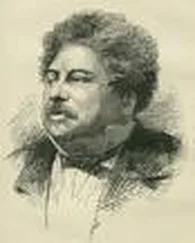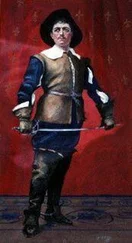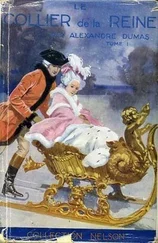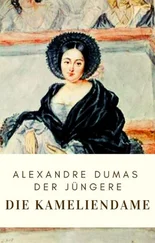Alexandre Dumas - Marguerite de Valois
Здесь есть возможность читать онлайн «Alexandre Dumas - Marguerite de Valois» — ознакомительный отрывок электронной книги совершенно бесплатно, а после прочтения отрывка купить полную версию. В некоторых случаях можно слушать аудио, скачать через торрент в формате fb2 и присутствует краткое содержание. Жанр: foreign_antique, foreign_prose, Историческая проза, на английском языке. Описание произведения, (предисловие) а так же отзывы посетителей доступны на портале библиотеки ЛибКат.
- Название:Marguerite de Valois
- Автор:
- Жанр:
- Год:неизвестен
- ISBN:нет данных
- Рейтинг книги:4 / 5. Голосов: 1
-
Избранное:Добавить в избранное
- Отзывы:
-
Ваша оценка:
- 80
- 1
- 2
- 3
- 4
- 5
Marguerite de Valois: краткое содержание, описание и аннотация
Предлагаем к чтению аннотацию, описание, краткое содержание или предисловие (зависит от того, что написал сам автор книги «Marguerite de Valois»). Если вы не нашли необходимую информацию о книге — напишите в комментариях, мы постараемся отыскать её.
Marguerite de Valois — читать онлайн ознакомительный отрывок
Ниже представлен текст книги, разбитый по страницам. Система сохранения места последней прочитанной страницы, позволяет с удобством читать онлайн бесплатно книгу «Marguerite de Valois», без необходимости каждый раз заново искать на чём Вы остановились. Поставьте закладку, и сможете в любой момент перейти на страницу, на которой закончили чтение.
Интервал:
Закладка:
"Ah, who comes here?" cried Coconnas. "A man without his doublet or scarf!"
"It is some one escaping," said Maurevel.
"Fire! fire!" said Coconnas; "you who have arquebuses."
"Faith, not I," replied Maurevel. "I keep my powder for better game."
"You, then, La Hurière!"
"Wait, wait!" said the innkeeper, taking aim.
"Oh, yes, wait," cried Coconnas, "and meantime he will escape."
And he rushed after the unhappy wretch, whom he soon overtook, as he was wounded; but at the moment when, in order that he might not strike him behind, he exclaimed, "Turn, will you! turn!" the report of an arquebuse was heard, a bullet whistled by Coconnas's ears, and the fugitive rolled over, like a hare in its swiftest flight struck by the shot of the sportsman.
A cry of triumph was heard behind Coconnas. The Piedmontese turned round and saw La Hurière brandishing his weapon.
"Ah," he exclaimed, "I have handselled this time at any rate."
"And only just missed making a hole quite through me."
"Be on your guard! – be on your guard!" cried La Hurière.
Coconnas sprung back. The wounded man had risen on his knee, and, eager for revenge, was just on the point of stabbing him with his poniard, when the landlord's warning put the Piedmontese on his guard.
"Ah, viper!" shouted Coconnas; and rushing at the wounded man, he thrust his sword through him three times up to the hilt.
"And now," cried he, leaving the Huguenot in the agonies of death, "to the admiral's! – to the admiral's!"
"Aha! my gentlemen," said Maurevel, "it seems to work."
"Faith! yes," replied Coconnas. "I do not know if it is the smell of gunpowder makes me drunk, or the sight of blood excites me, but by Heaven! I am thirsty for slaughter. It is like a battue of men. I have as yet only had battues of bears and wolves, and on my honor, a battue of men seems more amusing."
And the three went on their way.
CHAPTER VIII
THE MASSACRE
The hôtel occupied by the admiral, as we have said, was situated in the Rue de Béthizy. It was a great mansion at the rear of a court and had two wings giving on the street. A wall furnished with a large gate and two small grilled doors stretched from wing to wing.
When our three Guisards reached the end of the Rue de Béthizy, which is a continuation of the Rue des Fossés Saint Germain l'Auxerrois, they saw the hôtel surrounded by Swiss, by soldiers, and by armed citizens; every one had in his right hand either a sword or a pike or an arquebuse, and some held in their left hands torches, shedding over the scene a fitful and melancholy glare which, according as the throng moved, shifted along the street, climbed the walls; or spread over that living sea where every weapon cast its answering flash.
All around the hôtel and in the Rues Tirechappe, Étienne, and Bertin Poirée the terrible work was proceeding. Long shouts were heard, there was an incessant rattle of musketry, and from time to time some wretch, half naked, pale, and drenched in blood, leaped like a hunted stag into the circle of lugubrious light where a host of fiends seemed to be at work.
In an instant Coconnas, Maurevel, and La Hurière, accredited by their white crosses, and received with cries of welcome, were in the thickest of this struggling, panting mob. Doubtless they would not have been able to advance had not some of the throng recognized Maurevel and made way for him. Coconnas and La Hurière followed him closely and the three therefore contrived to get into the court-yard.
In the centre of this court-yard, the three doors of which had been burst open, a man, around whom the assassins formed a respectful circle, stood leaning on his drawn rapier, and eagerly looking up at a balcony about fifteen feet above him, and extending in front of the principal window of the hôtel.
This man stamped impatiently on the ground, and from time to time questioned those that were nearest to him.
"Nothing yet!" murmured he. "No one! – he must have been warned and has escaped. What do you think, Du Gast?"
"Impossible, monseigneur."
"Why? Did you not tell me that just before we arrived a man, bare-headed, a drawn sword in his hand, came running, as if pursued, knocked at the door, and was admitted?"
"Yes, monseigneur; but M. de Besme came up immediately, the gates were shattered, and the hôtel was surrounded."
"The man went in sure enough, but he has not gone out."
"Why," said Coconnas to La Hurière, "if my eyes do not deceive me, I see Monsieur de Guise."
"You do see him, sir. Yes; the great Henry de Guise is come in person to watch for the admiral and serve him as he served the duke's father. Every one has his day, and it is our turn now."
"Holà, Besme, holà!" cried the duke, in his powerful voice, "have you not finished yet?"
And he struck his sword so forcibly against the stones that sparks flew out.
At this instant shouts were heard in the hôtel – then several shots – then a great shuffling of feet and a clashing of swords, and then all was again silent.
The duke was about to rush into the house.
"Monseigneur, monseigneur!" said Du Gast, detaining him, "your dignity commands you to wait here."
"You are right, Du Gast. I must stay here; but I am dying with impatience and anxiety. If he were to escape me!"
Suddenly the noise of feet came nearer – the windows of the first floor were lighted up with what seemed the reflection of a conflagration.
The window, to which the duke's eyes had been so many times lifted, opened, or, rather, was shattered to pieces, and a man, his pale face and white neck stained with blood, appeared on the balcony.
"Ah! at last, Besme!" cried the duke; "speak! speak!"
"Louk! louk!" replied the German coldly, and stooping down he lifted up something which seemed like a heavy body.
"But where are the others?" asked the duke, impatiently, "where are the others?"
"De udders are vinishing de udders!"
"And what have you done?"
"Vait! You shall peholt! Shtant pack a liddle."
The duke fell back a step.
At that instant the object Besme was dragging toward him with such effort became visible.
It was the body of an old man.
He lifted it above the balcony, held it suspended an instant, and then flung it down at his master's feet.
The heavy thud, the billows of blood spurting from the body and spattering the pavement all around, filled even the duke himself with horror; but this feeling lasted only an instant, and curiosity caused every one to crowd forward, so that the glare of the torches flickered on the victim's body.
They could see a white beard, a venerable face, and limbs contracted by death.
"The admiral!" cried twenty voices, as instantaneously hushed.
"Yes, the admiral, here he is!" said the duke, approaching the corpse, and contemplating it with silent ecstasy.
"The admiral! the admiral!" repeated the witnesses of this terrible scene, crowding together and timidly approaching the old man, majestic even in death.
"Ah, at last, Gaspard!" said the Duke de Guise, triumphantly. "Murderer of my father! thus do I avenge him!"
And the duke dared to plant his foot on the breast of the Protestant hero.
But instantly the dying warrior opened his eyes, his bleeding and mutilated hand was clinched for the last time, and the admiral, though without stirring, said to the duke in a sepulchral voice:
"Henry de Guise, some day the assassin's foot shall be felt on your breast. I did not kill your father. A curse upon you."
The duke, pale, and trembling in spite of himself, felt a cold shudder come over him. He passed his hand across his brow, as if to dispel the fearful vision; when he dared again to glance at the admiral his eyes were closed, his hand unclinched, and a stream of black blood was flowing from the mouth which had just pronounced such terrible words.
Читать дальшеИнтервал:
Закладка:
Похожие книги на «Marguerite de Valois»
Представляем Вашему вниманию похожие книги на «Marguerite de Valois» списком для выбора. Мы отобрали схожую по названию и смыслу литературу в надежде предоставить читателям больше вариантов отыскать новые, интересные, ещё непрочитанные произведения.
Обсуждение, отзывы о книге «Marguerite de Valois» и просто собственные мнения читателей. Оставьте ваши комментарии, напишите, что Вы думаете о произведении, его смысле или главных героях. Укажите что конкретно понравилось, а что нет, и почему Вы так считаете.












